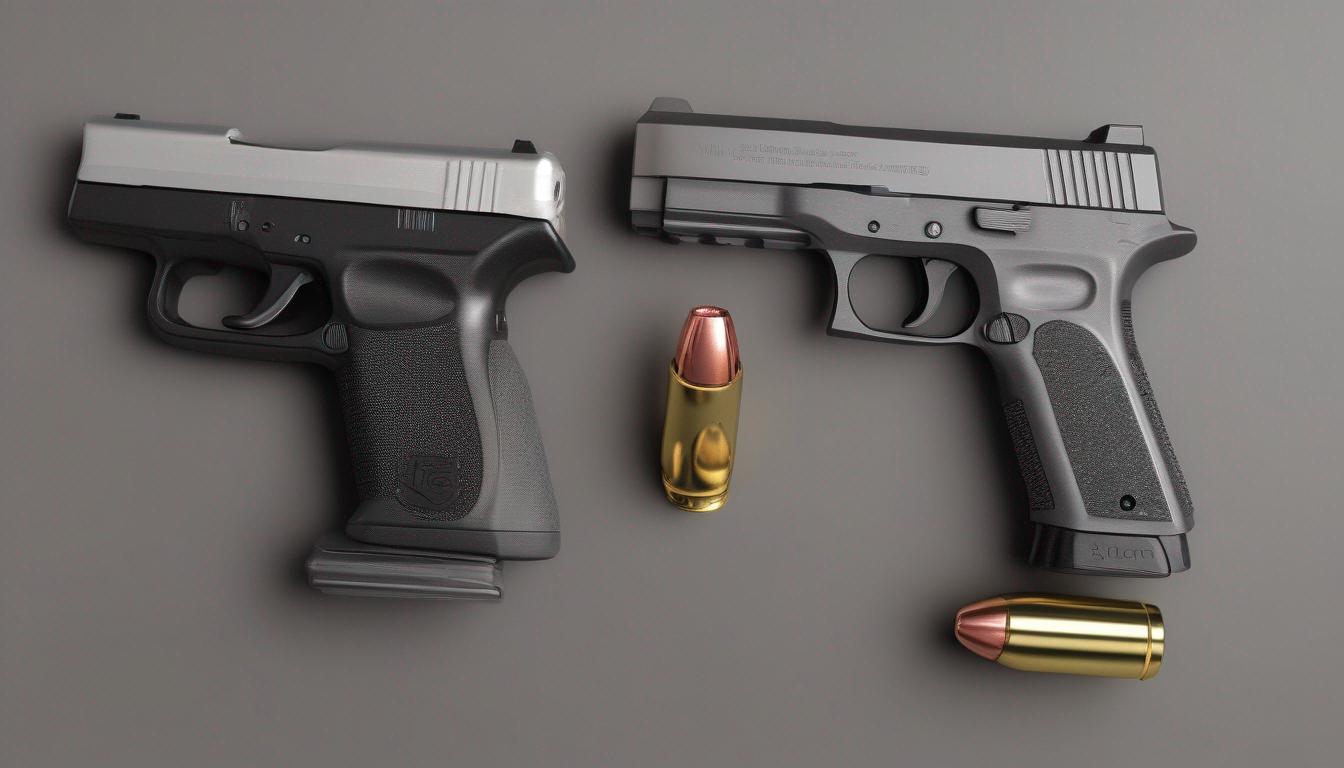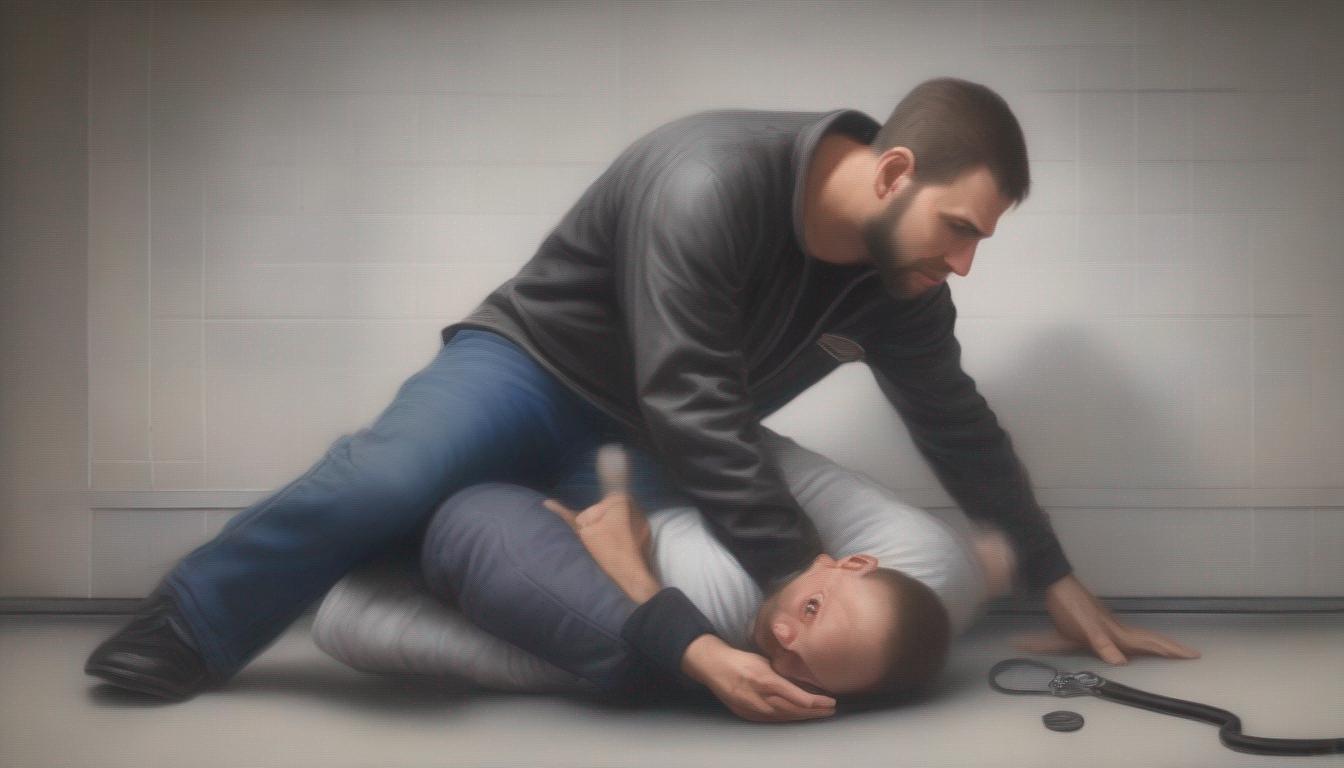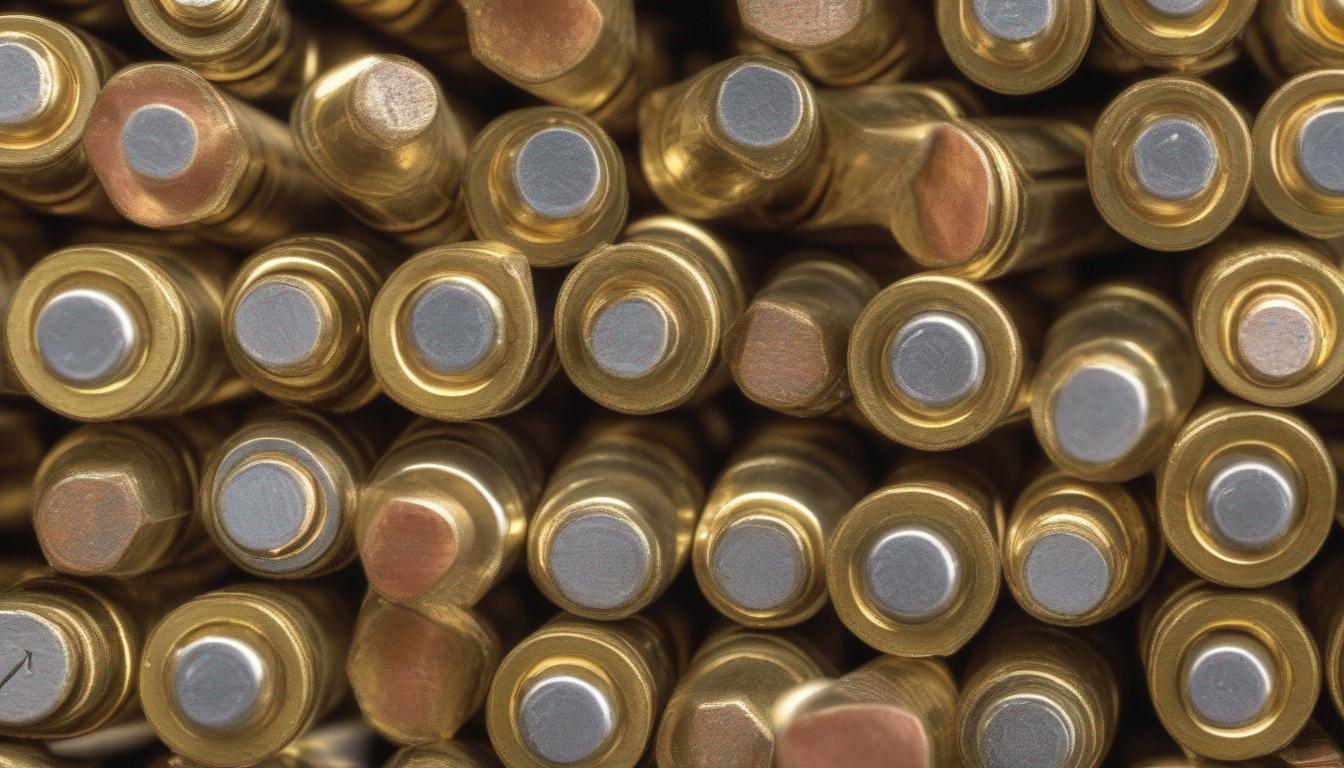Ballistics and Performance: Comparing the Effectiveness of .380 vs 9mm for Self-Defense
When considering the choice between .380 and 9mm for self-defense, it is crucial to delve into the realm of ballistics and performance to understand the effectiveness of each caliber in real-world scenarios. Both rounds have their proponents and detractors, but ultimately, the decision on which to use for self-defense hinges on various factors, including stopping power, recoil, ammunition capacity, and personal proficiency. Let’s explore the ballistics and performance aspects of .380 vs 9mm to help you make an informed decision.
Ballistics Comparison: .380 vs 9mm
Ballistics play a pivotal role in determining the stopping power and effectiveness of a round in self-defense situations. When comparing .380 ACP (Automatic Colt Pistol) and 9mm Luger (also known as 9mm Parabellum), the 9mm generally has the edge in terms of kinetic energy and velocity. The 9mm round is larger and faster than the .380, which translates to deeper penetration and better expansion upon impact.
Stopping Power and Effectiveness
Stopping power is a critical factor in self-defense scenarios. While the .380 is capable of neutralizing a threat, the 9mm round is known for its superior stopping power. The larger size and higher velocity of the 9mm round result in more energy transfer upon impact, increasing the likelihood of incapacitating an assailant effectively.
Recoil and Control
Recoil management is important for shooters of all levels, especially in high-stress situations like self-defense encounters. The .380 round generates less recoil compared to the 9mm, making it more manageable for shooters who may struggle with controlling the gun during rapid fire. However, modern 9mm handguns are designed to mitigate recoil, making them easier to handle for most individuals.
Ammunition Capacity and Concealability
Another aspect to consider is ammunition capacity and concealability. .380 pistols are generally smaller and lighter, making them easier to conceal. However, they often come with a lower ammunition capacity compared to compact or subcompact 9mm handguns. In a self-defense scenario where every round counts, having a higher capacity can be advantageous.
Personal Proficiency and Practice
Ultimately, the effectiveness of a caliber in self-defense heavily relies on the shooter’s proficiency and practice. Regardless of whether you choose .380 or 9mm, regular training and practice are crucial for developing marksmanship skills and the ability to handle the firearm confidently under stress.
Both .380 and 9mm have their merits and drawbacks in self-defense situations. While the 9mm is generally considered more effective due to its superior ballistics and stopping power, the .380 remains a viable option for individuals who prioritize concealability and manageable recoil. The best choice for self-defense ultimately depends on your comfort level, proficiency with the firearm, and specific needs.
Concealability and Carry Considerations: Choosing Between .380 and 9mm for Personal Protection
Choosing the right firearm for self-defense is a critical decision that requires careful consideration of various factors. Two popular options often debated among gun owners are the .380 ACP and the 9mm. While both calibers have their advantages and disadvantages, the choice between the two ultimately comes down to personal preference, comfort, and effectiveness in real-life self-defense situations.
Concealability
One of the key factors to consider when selecting a handgun for personal protection is its concealability. The size and weight of the firearm play a significant role in how easily it can be carried on a daily basis. In this aspect, the .380 ACP often has the upper hand over the 9mm. .380 pistols are generally smaller and lighter, making them easier to conceal on your person, especially in warmer climates or when wearing lighter clothing. The compact size of .380 pistols makes them ideal for concealed carry and can be more comfortable for individuals with smaller hands or those looking for a more discreet option.
Stopping Power and Effectiveness
When it comes to self-defense, stopping power is a crucial factor to consider. The 9mm is known for its superior stopping power compared to the .380 ACP. The 9mm bullet is larger and faster, which can lead to better penetration and overall effectiveness in neutralizing a threat. In a self-defense scenario where every shot counts, having a more powerful caliber like the 9mm can provide added confidence and security. However, it’s essential to remember that shot placement and shooter proficiency are equally important in determining the outcome of a self-defense encounter.
Recoil Management and Shootability
Recoil is another critical factor to consider when choosing between the .380 and the 9mm. While the 9mm has more recoil due to its higher velocity and energy, modern advancements in firearm technology have made 9mm pistols more manageable for shooters of all skill levels. On the other hand, the .380 ACP offers significantly less recoil, making it easier to shoot accurately, especially for those with limited hand strength or recoil sensitivity. Ultimately, the right choice between the two calibers comes down to finding a balance between stopping power and shootability that works best for you.
Ammunition Availability and Cost
A practical consideration when selecting a self-defense caliber is ammunition availability and cost. The 9mm is one of the most commonly used calibers worldwide, which means that ammunition is widely available and comes in a variety of options, including hollow points for self-defense. Additionally, the cost of 9mm ammunition is usually lower compared to less common calibers like the .380 ACP. This availability and affordability make the 9mm a practical choice for those who prioritize ease of access to ammunition and regular practice at the range.
The choice between the .380 ACP and the 9mm for self-defense ultimately depends on your individual needs and preferences. While the 9mm offers superior stopping power and effectiveness, the .380 ACP provides better concealability and less recoil. It’s essential to weigh all the factors discussed above and consider factors like comfort, shootability, and ammunition availability before making a decision. Whichever caliber you choose, remember that regular training and practice are crucial in developing and maintaining proficiency with your chosen firearm.
Key Takeaway:
When deciding between .380 and 9mm for self-defense, it’s crucial to consider factors such as ballistics, performance, concealability, and carry considerations. Both calibers have their pros and cons, and choosing the right one depends on individual preferences and requirements.
In terms of ballistics and performance, the 9mm generally offers better stopping power and penetration compared to the .380. The 9mm bullet is larger and faster, making it more effective at neutralizing threats. On the other hand, the .380 is known for its lower recoil, which can be beneficial for shooters who prioritize control and accuracy. Ultimately, the choice between these two calibers comes down to balancing power with ease of shooting.
When considering concealability and carry considerations, the .380 is often favored for its compact size and lightweight nature. It is easier to conceal in smaller firearms, making it a popular choice for concealed carry. However, the 9mm has also become more compact over the years, with many manufacturers offering slim and lightweight 9mm pistols designed for discreet carry. Therefore, individuals should test different firearms in both calibers to determine which one they can comfortably carry on a daily basis.
The decision between .380 and 9mm for self-defense is a personal one that should be based on individual needs and preferences. While the 9mm offers superior ballistics, the .380 provides better concealability. It’s essential to prioritize factors such as stopping power, recoil management, ease of carry, and overall comfort when selecting a firearm for personal protection. By evaluating these key considerations, individuals can make an informed decision that aligns with their self-defense requirements and lifestyle.
Conclusion
When deciding between .380 and 9mm for self-defense, it’s crucial to consider both ballistics and performance along with concealability and carry considerations. The effectiveness of a round in stopping a threat and the ease of carrying the firearm are vital factors that can make a significant difference in a life-threatening situation.
In terms of ballistics and performance, the 9mm round has proven to be more powerful compared to the .380. With a larger bullet diameter, higher velocity, and better penetration, the 9mm generally offers superior stopping power. This can be crucial in self-defense scenarios where every shot counts. The ability of the 9mm to incapacitate a threat with fewer shots can make a significant difference, especially in high-stress situations.
Conversely, the .380 round, while less potent than the 9mm, still offers adequate stopping power for self-defense purposes. It is a popular choice for those who prioritize ease of shooting and concealability. The lesser recoil of the .380 can make it more manageable for individuals who may struggle with controlling larger calibers. Additionally, the smaller size of firearms chambered in .380 makes them more discreet and easier to carry on a daily basis.
When it comes to concealability and carry considerations, the .380 shines due to its compact size and lightweight firearms that are ideal for concealed carry. The smaller dimensions of .380 pistols make them easily concealable in various clothing styles, allowing for comfortable and discreet carry. This can be particularly advantageous for individuals who need to carry a firearm regularly in a concealed manner.
On the other hand, the 9mm, while slightly larger than the .380, still offers good concealability options with the availability of compact and subcompact firearms. Advances in firearm design have made it possible to carry a 9mm comfortably and discreetly, even in hot weather or with minimal clothing. The added capacity and firepower of the 9mm can provide a sense of confidence for those who opt for this caliber.
Ultimately, the choice between .380 and 9mm for self-defense boils down to personal preferences, shooter abilities, and individual comfort levels. While the 9mm offers superior ballistics and stopping power, the .380 excels in concealability and ease of carry. It is essential for individuals to weigh these factors carefully and choose a caliber and firearm that they are comfortable and proficient with, as shot placement and shot accuracy play a crucial role in self-defense situations. Whichever caliber is selected, regular training and practice are key to effectively utilizing the chosen firearm for personal protection.


